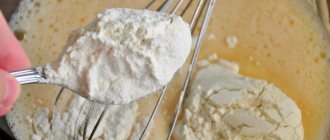| What can replace lemon and its juice? | Description |
| Alternative for drinks | Lemon juice contains a large amount of vitamin C, so it is often included in various “vitamin” cocktails. Other citrus fruits are suitable instead, for example:
They are also rich in vitamins, so they will be a good alternative. |
| Fruit juices | In baked goods or in salads, a good replacement would be the same sour juices, which contain a large percentage of vitamin C. This can be the juice of sour apples or grapefruit. The following juice is suitable for homemade mayonnaise or for slaking soda:
Various sugar-free berry concentrates are also suitable. |
| Berries | Berries are a good substitute for lemon in a meat marinade. They not only have a vitamin-rich composition, but also allow you to saturate the dish with a pleasant berry taste. Berry juices have a beneficial effect on the condition of the skin, digestive functions, and the immune system. |
| Vinegar | In solyanka it is permissible to use not only lemon zest and juice, but also vinegar. It is also relevant in baking and other dishes. Vinegar works best as an alternative:
|
| Lemon acid | This is the most successful option not only for cooking fish, but also for other dishes. It just needs to be dissolved in water and then added to the dish. If you need to soften the sour taste, you can use honey. In some cases, the powder can be added to a dish without diluting with water, for example, in a salad. |
Lemon, and in particular its juice, is widely used in cooking. Quite often it acts as an excellent means for cleaning kettles, microwaves, and washing machines from dirt and scale.
Lemon juice is added to baked goods and used when preparing fish. It makes the taste and aroma of the dish more pronounced and helps make the dough more fluffy.
If during the preparation of a particular dish this product is not on hand, the question arises of what can replace the lemon. There are several alternative products that can be used as a complete replacement.
Fruit juices
In baking and in marinade, you can use not only lemon juice, but also berry and fruit juices. They also contain ascorbic acid and can be used to make sauces.
You can choose juice as a replacement:
- apples;
- other citruses;
- sea buckthorn;
- cranberries;
- lingonberries;
- currants.
In addition to juices, berry concentrates are a good solution; it is important that they do not contain sugar. You can add lemon zest or other citrus fruits to the dough for desserts.
Replacement of lemon in cooking
- In salad dressings . Forget about mayonnaise as a salad dressing. There are easier, healthier and tastier alternatives. For example, lemon juice. If it is not nearby, use any vinegar - wine, apple, raspberry or balsamic.
- For the marinade .
Kebab lovers know: for a successful marinade you need three ingredients - acid, vegetable oil and aromatics. The acid softens the fibers of the fabric, making the meat softer so that the oils, spices and herbs can be absorbed. As you can see, there’s nowhere without acid. What to do if you don’t have fresh lemon on hand? Use citric acid. It is sold in any store. In addition, small bags are convenient to take with you on trips to nature - they take up very little space. - In conservation .
What is not canned for the winter: vegetables, fruits, mushrooms, berries, meat, fish. And in almost every recipe there is a place for lemon juice, which is a preservative and softens the taste. There is no big difference between using juice or acid. These products are interchangeable. Want something new? Add sour berries instead: lingonberries, cranberries, red currants, rowan. - For the sauce . There are many different sauces: from the well-known mayonnaise and ketchup to the most exotic. The lemon juice in them adds a piquant sourness. But don't be afraid to experiment and replace it with acids and vinegars. In addition, there is a sour oriental spice, sumac, which is traditionally added to sauces intended for meat.
- For drinks. A well-known rule for maintaining health is to drink a glass of water in the morning on an empty stomach. Lemon juice is often added there because it contains a lot of vitamins, acids and minerals. This drink improves digestion, tones the body and stimulates brain activity. However, water with the juice of any citrus fruit will have the same properties: orange, tangerine, grapefruit, lime. They are also high in vitamin C.
In addition to drinks for health, there are drinks for the soul. Of course, we are talking about lemonades. Despite the fact that the name itself contains the main ingredient - lemon, its juice can always be replaced with the juice of another citrus fruit.The taste will change a little, but what if this option becomes your favorite?
- For baking . Do you want to give your baked goods a pleasant taste with a slight sourness? Add lemon juice to the dough. If you don't have juice on hand, use acid.
- For desserts . Lemon juice is used in the preparation of mousses, jams, meringues, creams, and glazes. Replace it with citric acid or the juice of another citrus. In the latter case, the dessert will acquire a new unusual taste.
- For mayonnaise . Nowadays you can buy mayonnaise in any supermarket, but some housewives make it themselves. It should contain an acid, which is often used as lemon juice. But nothing bad will happen if you replace it with citric acid or vinegar.
Proportions
Be careful with the proportions: different varieties have different levels of acidity. Juice of 1 lemon = 5 grams of citric acid = 1 tablespoon of vinegar = equal volume of juice of another citrus.
Advantages and disadvantages
Sometimes lemon juice is substituted because of an allergy, sometimes for the sake of variety, sometimes because it simply isn’t on hand. How will this affect the result?
pros:
- Saving . Recipes most often do not require the whole lemon, but, unfortunately, you cannot buy a slice. So the lemon sits in the refrigerator, and then, completely dry, it goes into the trash. This will not happen if you use citric acid or vinegar, which are sold in bags and bottles, respectively. You will definitely use them completely, since they last longer.
- Variety of taste . The dish will sparkle with new colors if you add other citrus juices, sour berries or even sumac (a sour oriental spice). Modern nutritionists claim that a varied diet prevents overeating.
- Rescue from allergies . Replacing lemon juice with other ingredients can allow allergy sufferers to enjoy gastronomic delights without harm to their health.
Minuses:
- There may be errors in proportions.
- Using vinegar can be dangerous for people suffering from diseases of the gastrointestinal tract, gastritis, and ulcers.
As you can see, there are not many disadvantages, but they are worth keeping in mind.
Berries
Berries are probably the best alternative to lemon. They, of course, are not able to replicate the taste of lemon, but they will add the necessary sourness to the dish and saturate it with vitamins.
Eating berries has a beneficial effect on:
- skin condition;
- functioning of the digestive organs;
- immune system;
- health in general.
The berries would be appropriate in salads and jelly. This is a good addition to marinade or sauce for meat and fish. To prepare fish, it is better to use grape and pomegranate juices. Any berries can be added to jam, saturating it with vitamins, pleasant taste and aroma.
Dyes
It is often recommended to add food coloring to the glaze; with it, the color turns out bright, and the product takes on a festive, cheerful look. Of course, there is nothing wrong with using food coloring from a bag, but you can add natural coloring products to the icing. For example, a spoonful of raspberry jam - you get a red color and a magical raspberry aroma. A pinch of turmeric and a piece of butter will give you an intense orange tint.
Secret: it’s better not to use porous chocolate for the glaze. And if you add a spoonful of cocoa to the chocolate, the color will be more saturated.
Lemon acid
There is no better alternative than citric acid. It allows you to completely replicate the taste of lemon. If you have zest, you can also include it in the dish so that not only the taste, but also the aroma is appropriate.
Citric acid can be diluted:
- water;
- apple cider vinegar;
- honey.
Sometimes you don’t even need to dilute it with anything; use pure powder, which will add the desired sourness and fluffiness to the dish.
There are many options for replacing lemon. They all help in preparing all kinds of dishes. Each analogue has its own specific taste and aroma, but most importantly, they have characteristics almost identical to lemon. Study each of the presented analogues and choose the most suitable one for yourself.
What are they replacing?
Lemon as an independent dish in cooking can hardly be replaced with anything . As for other uses of lemon, lemon juice is most often used, as mentioned above.
An ordinary housewife knows recipes well. An excellent housewife knows how to apply them in real life. She will not be embarrassed by the lack of lemon juice or an allergy to it, because she knows what can replace it. Do you also want to become an excellent housewife? Read the article again.
If you find an error, please select a piece of text and press Ctrl+Enter.
Mistake #1: Wrong fish
Before you go to the market or store for fish, you need to understand what you want to cook. Because fish under marinade is not at all the same as fish fried in breading or baked in the oven. And lightly salted, for sushi or ceviche - this is a completely different world.
You can buy very good fish and cook it according to all the rules. But if you choose excellent cod at the market, and then decide to make it lightly salted, then no matter what rules you follow, no matter how proven recipes you use, the end result will be something strange and tough. Because the ideal cooking method for cod is baking. For quality cod. And here we move on to the second point.
Mistake #4: Refrigerated is best.
If you decide that it is easier to buy chilled fish than frozen fish, then to some extent you are right. You can smell the chilled fish, look into its eyes and gills. There's just one problem. “Unfortunately, in Moscow (and in other Russian cities far from the seas - editor’s note) they often try to sell high-quality defrosted fish under the guise of chilled fish,” said Grigory Chunikhin. — Without extensive experience working with fish, it is very difficult at first glance to distinguish chilled fish from properly defrosted fish. Clear signs of chilled fish are elastic meat, clear eyes, bright pink gills, and a subtle pleasant smell of the sea.”
If they tell you that chilled cod or salmon came from Murmansk or the Far East, do not believe it. We don't have any unfrozen fish from there. Fishermen freeze fish while still at sea, immediately after catching it. And she goes to the center of Russia frozen.
If you find chilled fish from fish farms (that is, not wild, but grown in pools), then, according to Rostislav Ereshko, you should first of all pay attention to the following 5 factors:
1) The eyes should be “glassy”, not cloudy (but this is not always an indicator for wild fish, since the eyes can become cloudy during air transportation due to pressure changes).
Article on the topic
Pike perch cutlets and salmon roll. Menu for fish day
2) The abdomen should be dense, without a yellowish tint.
3) The gills should be pink or dark red (should not be gray or black). In fish, the gills and entrails are always the first to spoil. Thus, if they are removed from chilled fish, then this should alert you.
4) Pressing on the back of the fish should not leave any marks. If traces remain, it means the fish is stale.
5) Mucus on chilled fish is an indicator of freshness; it retains moisture.
Mistake No. 2. Second freshness
Fish is a rather difficult product to choose. Most often it is sold frozen; it is quite difficult to determine its quality. In any case, you need to look very carefully. And also - rely on your nose.
“Any fresh fish should be almost odorless. If the fish develops a characteristic fishy aroma, it means it is not fresh,” warns Grigory Chunikhin, chef of the Cutfish bistro restaurant .
“It is much more difficult to determine the quality of frozen fish; visually it should be without visible damage, not have an unpleasant odor, and there should be no traces of re-freezing,” agrees with his colleague Rostislav Ereshko, sous-chef of the restaurant “ERWIN.RiverMoreOcean” .
Mistake #5: Live fish
Buying live fish has its own nuances. Not all fish are sold in this form. Most often these are river fish: carp, pike perch, catfish. Small sturgeons are often sold in aquariums. This fish is not from big rivers, but from farms. And you need to understand that river fish needs to be well cooked, since even for farmed fish there is still a danger of infection with parasite larvae. Therefore, such fish is not eaten raw or half-raw. This is the first.
Second point: fish in aquariums often fall asleep. And sleep for a fish is practically death. How long she “sleeps” in this aquarium is unknown. “When choosing live fish, it is very important that it shows signs of life,” Grigory Chunikhin shares his experience. - Just because it is in an aquarium does not guarantee that it is alive. When purchasing live fish, it is advisable to have it cleaned and gutted in front of you, without taking it to another room.”
Article on the topic
Trout from Provence. Cooking under the guidance of a Michelin star chef










